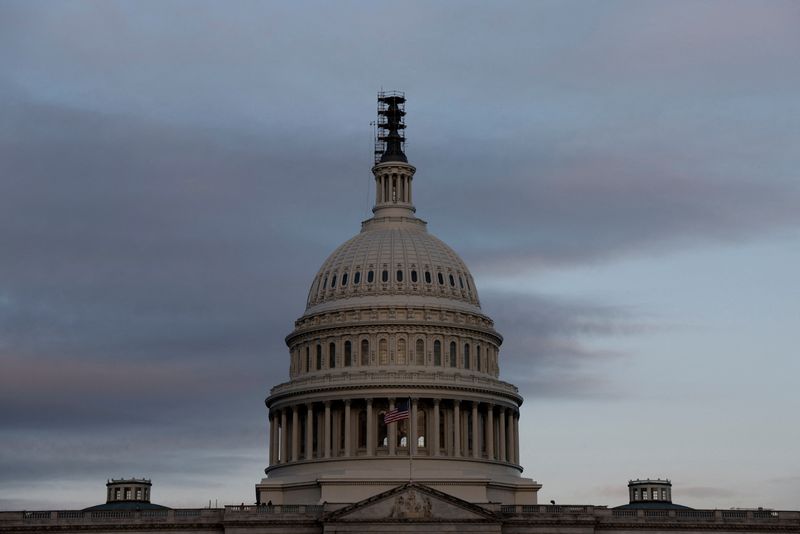
© Reuters. FILE PHOTO: The morning sky brightens over the U.S. Capitol, where lawmakers continue to posture and negotiate spending bills ahead of a looming U.S. government shutdown in Washington, U.S. September 28, 2023. REUTERS/Jonathan Ernst/File Photo
WASHINGTON (Reuters) – If Congress fails to provide funding for the fiscal year starting on Sunday and the government shuts down, the effects will be felt around the world, with many workers furloughed from foreign policy and national security positions or ordered to work without pay.
A shutdown could also dent the United States’ reputation at a moment when the Biden administration is trying to persuade many countries to side with it rather than its rival, China, and unite behind Ukraine as it battles Russia.
Here is a guide to some of the effects:
STATE DEPARTMENT
U.S. embassies and consulates will remain open and passport and visa processing will continue as long as there are sufficient funds to cover operations. Nonessential official travel, speeches and other events would be curtailed.
Some foreign aid programs could also run out of money or have trouble performing their missions. A Department of State spokesperson said that, with limited staff available to implement and monitor programs, there could be delays in responding to crises, providing health assistance for programs focused on malaria, tuberculosis or HIV-AIDs, or delivering security assistance.
“Our work would clearly be affected by this,” Secretary of State Antony Blinken said. “It would make it harder to do everything that we do to try to advance national security.”
And, while the State Department has said it will use available funds to pay locally employed staff as long as possible, most local staff at overseas missions are subject to local laws that preclude furloughs – being ordered not to work – and unpaid work. This could leave the department vulnerable to lawsuits.
THE MILITARY
The country’s 2 million military personnel would remain at their posts, and roughly half of the Pentagon’s 800,000 civilian employees would be furloughed, with others on the job but not paid.
Contracts awarded before the shutdown would continue, and the Pentagon could place new orders for supplies or services needed to protect national security. Other new contracts, including renewals or extensions, would not be awarded. Payments to defense contractors such as Boeing (NYSE:), Lockheed Martin (NYSE:) and RTX, formerly known as Raytheon (NYSE:), could be delayed.
The authority to draw from U.S. arms supplies for Ukraine remains intact, but some deliveries of defense articles could be slowed or paused, with many workers furloughed.
The Department of Energy’s National Nuclear Security Administration would continue maintaining nuclear weapons.
SPY AGENCIES
The Central Intelligence Agencies and other intelligence agencies have not publicly shared their plans for a shutdown. But in the past, staff involved in operations, analysis and cyber activities have been deemed critical to national security and ordered to keep working, possibly without pay.
Nonessential employees would be sent home and noncritical travel would be canceled or postponed.
>>> Read full article>>>
Copyright for syndicated content belongs to the linked Source : Investing.com – https://www.investing.com/news/economy/factboxhow-a-us-government-shutdown-would-affect-foreign-policy-3186859










